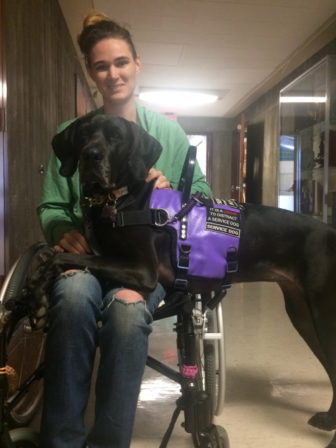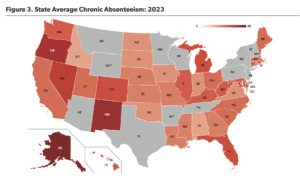 ALEXANDERSTOCK23/SHUTTERSTOCK
ALEXANDERSTOCK23/SHUTTERSTOCK
Starting in April, as a response to the COVID-19 emergency, the U.S. government issued a round of stimulus checks to American citizens accompanied by allocations for businesses that were hit hard and unemployment insurance for those who lost their jobs. The entire stimulus package, named the CARES Act, was over $2 trillion in total and paid $1,200 to adult citizens and $500 for each child under the age of 17. This was supposed to offset the hardships of Americans who have lost their jobs, who were struggling to pay rent and to support their families.
Currently, U.S. citizens are awaiting a second stimulus package, named the HEROES Act, which has been tied up as Congress. Although every little bit helps, many Americans feel that the one-time payment is not enough and are hoping for a second round of checks. I spoke to two young Americans to get their input on the stimulus packages.

Andy Gonzalez De La Garza
Andy Gonzalez De La Garza weighed in on her experience with the first stimulus check and what she hopes for the second. Gonzalez De La Garza is 20 and lives in Houston. She has been diagnosed with Ehlers Danlos syndrome, which affects the skin, joints and blood vessels; mast cell activation syndrome, which causes allergic symptoms; postural orthostatic tachycardia syndrome, which affects blood flow, and gastroparesis, which affects stomach muscles and prevents the stomach from emptying properly.”
As a college student I did not receive any stimulus package,” she said. “However, I’m hoping there is a second stimulus that is also made available for college students. I think it would be an extremely beneficial thing to have.”
To date, about 9 million people have still not received their stimulus check. One of the major reasons people did not get the payment is because they were not on record as having a tax return. The government used this information to know who qualified for the money.
Cian Power is 25 and lives in San Luis Obispo, California. Power uses the pronouns they/them. They have several disabilities, including postural orthostatic tachycardia syndrome, which affects blood flow; myalgic encephalomyelitis, which causes severe fatigue; and autism. On social media they like to “show what it is like to have a service dog and mitigate having disabilities.”
Although the first stimulus package was helpful it did not do enough to combat the larger problems, they said.

Cian Power
“The stimulus package was nice, but it only does so much. We really need a hold placed on rent so people aren’t [losing] their residence. A second check would be nice, but it seems like it’s just a bandage for the problems that are arising,” they said.
Power also gave me their perspective on the young people who missed out on celebrating milestones due to the pandemic.
“It’s been severely isolating. I didn’t realize how much socializing was done at school. I can’t help but think of the students that didn’t get to walk for graduation or go to a graduation night party. These things are only going to happen once and the youth [have] to stay at home and sit out,” they said.
Gonzalez De La Garza also told me how COVID-19 has affected her personally.
“The biggest hurdle has definitely been mental. Before quarantine, even when I felt sick, I would go out because I had class or other events to attend, but now everything is online, and when I feel ill it’s difficult to motivate myself to leave my apartment even if it’s just for grocery shopping, so my mental health has definitely been impacted,” she said.
She added that her schooling and her health have been impacted as well.
“School has become much harder. Before, teachers were a lot more lenient and understanding about my disabilities, but now with everything online they expect me to be able to do everything my abled peers can do because the physical hurdle of attending class is no longer there. They don’t understand the toll of cognitive dysfunction, memory loss and chronic fatigue that I still have to contend with every day. Not only that, but some aspects of my health have also stalled. I was supposed to meet with a PT months ago for my wheelchair assessment, but because of COVID they’re not taking appointments, which has left me in a medical limbo.”

Deandra Mouzon
As young people with disabilities continue to fight against the struggles caused by the coronavirus, additional funds from the government can only help. Extra costs for medical services and equipment can add up. As we wait to see if there will be a second round of stimulus checks, let’s keep our fingers crossed that the money can actually do what it is intended to do — help sustain Americans financially.
Deandra Mouzon is a Georgia-based journalist who received a B.A. in journalism from CUNY’s York College. Currently she is working on a publication about youth with disabilities.






























